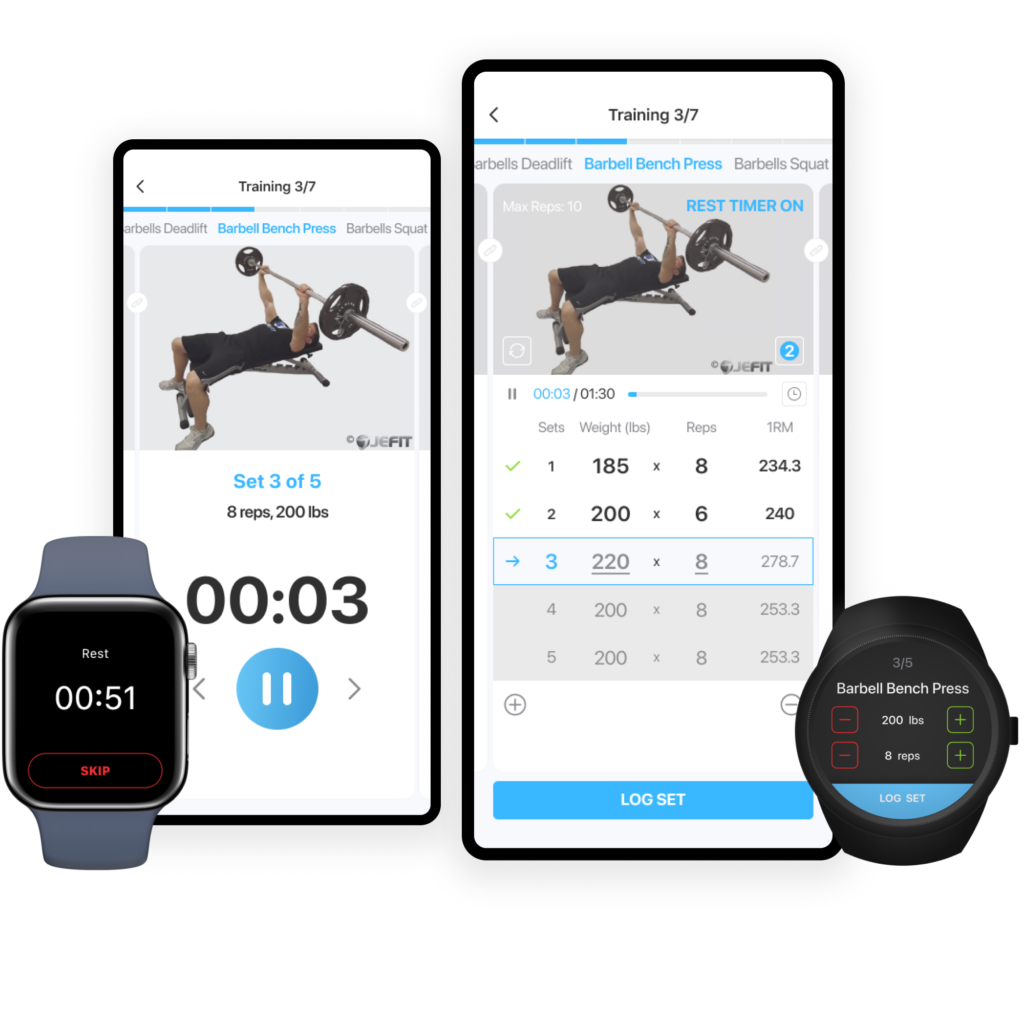According to IQVIA Institute for Human Data Sciences, there were more than 300,000 mobile health apps a few years ago. That number is expected to top 400,000 apps this year. The growth rate will be 15 percent reaching 31 billion in revenue by the end of the year. One key question is, can all this technology help get better results if you use it to plan and track workouts?
Many people hire trainers, coaches or like a workout partner because they invariably know they work harder with them compared to alone. Working harder typically means lifting more weight in training sessions and being more consistent with individual workouts. In turn, results are more significant and goals are met more often. There is actually a name for this, its called the Hawthorne Effect, or observer effect. The basic definition is “the alteration of behavior by the subjects of a study due to their awareness of being observed.” When you know you’re being watched or you have to regularly check-in and record your data, you do better.
There is a trickle down effect from working with a coach to using specific technology, like an exercise app. Writing things down and planning, shows ownership, “you don’t own it until you write it down”…or record it. Those who plan and track workouts do better than people who don’t track their workouts. A great example of this is a high-level athlete who works with their coach over a four-year period to prepare for an Olympic event.
Does Using an App Make You More Confident?
A survey reported in Elliptical Reviews looked at the exercise habits of nearly a 1,000 people. The results were pretty favorable regarding the benefit of using an exercise app. The results showed 55 percent of subjects used an exercise app prior to the study. All app users reported more consistent workouts and they were more confident when they worked out. In the survey, 73 percent of women and 66 percent of men were more confident when they were using a workout app.
The survey also showed 40 percent of people who use fitness apps workout five or more days per week. The survey found only 4.9 percent of non-app users exercise every day, compared to 7 percent of people who used an app.
Can an App Can Increase Physical Activity?
The Journal of Medical Internet Research, makes the case that those who use exercise apps are more likely to exercise during their free time than those who don’t use an app.
“The study concludes that exercise apps may be improving exercise levels and health outcomes by making it easier for users to overcome barriers to exercise, such as lack of ready access to information, lack of interest and motivation, and lack of access to exercise facilities, etc.”
Shiva Gopal Reddy, M.Sc.
Research from the University of South Australia showed promising results with smartphone apps. They called apps “a promising tool for delivering accessible and appealing physical activity interventions.” The goal of this systematic review by Romeo and colleagues tried to determine the “effectiveness of smartphone apps for increasing objectively measured physical activity in adults.” The review looked at nine different research studies that met all of the researchers’ criteria, totaling 1740 subjects. This review reported an increase in physical activity in subjects who used apps for a minimum of 3-months.
Stay Strong Together
The Jefit app is used to plan and track workouts. It comes with a customizable workout planner, an extensive exercise library, and a members-only Facebook group. You can choose new workouts and track your progress with the app. It keeps you on track to see how close you are to reaching your fitness goals. The app includes more than 1400 exercises, more than 4500 strength training workouts, and >12.5 million downloads to date. Jefit was named best app for 2024, by PC Magazine, Forbes, Garage Gym Reviews and many others.
- Optimal Recovery Time for Strength Training - January 21, 2026
- Train Smarter With MED: Minimum Effective Dose Strength - January 14, 2026
- Auto-Regulated Strength Training: A Smart Way to Lift - January 7, 2026
